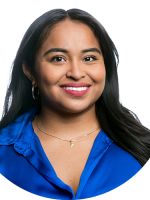TRANSCRIPT OF VIDEO
KEYRIS MANZANARES: Indigenous Peoples have deep ties to William & Mary's campus. The land was originally claimed by native populations and prior to 1723, Indian boys attended residential school at the college's Wren Building, and later Brafferton. Now, in a space where Indigenous peoples were stripped of their cultural heritage, including language, this group of women has chosen William & Mary as a meaningful place to meet, to awaken what was once lost.
RAVEN “BRIGHTWATER” CUSTALOW (FOUNDER, EASTERN WOODLAND REVITALIZATION): Unfortunately, through assimilation and genocidal practices, both physical and paper genocide, our people in this area haven't spoken fluently in at least 200 years, I would say. So, all we have left are a few, maybe a thousand or so words, if that.
KEYRIS MANZANARES: Raven “Brightwater” Custalow grew up on the Mattaponi tribe reservation in King William County. She's committed to advocating for preserving Indigenous heritage.
RAVEN “BRIGHTWATER” CUSTALOW: I think most of us can probably say, maybe a short introduction... wingapo (hello), (welcome) nitapewak (my friends), kenah (thank you) anah (goodbye), those sort of like basic words that you would use it in like everyday language.
KEYRIS MANZANARES: During meetings, Custalow, along with Diana Gates and Young Brinson, who are cousins from the Cheroenhaka Nottoway tribe, research words and pronunciations as they start trying to put the puzzle of Virginia's Algonquin language back together.
YOUNG BRINSON (CONSULTANT, EASTERN WOODLAND REVITALIZATION): The culture of Virginia has always been steeped in Algonquin culture and I think that's why we've been led to it. And so, it's just cool that we are all coming together now to really lift this off the ground and get it started because we're making moves and I love it.
KEYRIS MANZANARES: The group is in the beginning stages of language revitalization. And while they may never be fluent, they hope future generations will be.
DIANA GATES (CONSULTANT, EASTERN WOODLAND REVITALIZATION): Native children who are surrounded and enveloped in the warmth of their community and their culture, they’re connected to their tribe through speaking their language. The rates for substance abuse, suicide, they go drastically down, high school graduation rates go drastically up.
KEYRIS MANZANARES: Because Virginia tribes were colonized much earlier than those out West, Gates says reviving their language can feel isolating.
DIANA GATES: We were colonized in the early 1600s. We had a boarding school called the Brafferton, which is located here at William & Mary, and it's all of these sort of historical elements of stripping away, piece by piece, culture and language that it's really healing for us to say, well, these parts of us aren't dead.
RAVEN “BRIGHTWATER” CUSTALOW: I feel like language transcends the physical space. It even transcends into that spiritual place. When my time here is no longer and I join my ancestors in that spirit world, can I greet them and will they understand me? And that's a big part of why I do what I do, is I want that connection to them and I want to be able to speak their language.
KEYRIS MANZANARES: Reporting for VPM News, I'm Keyris Manzanares.








